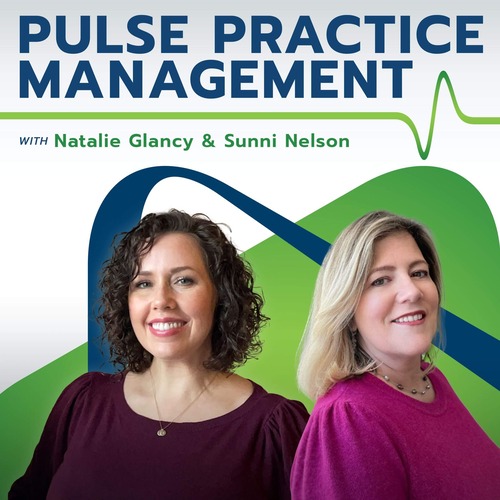● The OIG will review the appropriateness of the use of certain claims modifier codes during the global surgery period and determine whether Medicare payments for claims with modifiers used during such a period were in accordance with Medicare requirements. Prior OIG work found that improper use of modifiers during the global surgery period resulted in inappropriate payments. The global surgery payment includes a surgical service and related preoperative and postoperative E/M services provided during the global surgery period.
Physicians and Other Suppliers—Excessive Billing of Beneficiaries● The OIG will review the extent to which physicians and other suppliers fail to comply with assignment rules and determine to what extent beneficiaries are inappropriately billed in excess of amounts allowed by Medicare.
Ophthalmological Services—Questionable Billing● The OIG will review Medicare claims data to identify questionable medical billing for ophthalmological services during 2011. In 2010, Medicare allowed over $6.8 billion for services provided by ophthalmologists.
Claims Processing Errors—Medicare Payments for Claims With G Modifiers● The OIG will determine the extent to which Medicare improperly paid claims in which providers entered GA, GX, GY, or GZ service code modifiers, indicating that Medicare denial was expected. A recent OIG review found that Medicare paid for 72% of pressure-reducing support surface claims with GA or GZ modifiers, amounting to $4 million in potentially inappropriate payments.
Comprehensive Error Rate Testing (CERT) Program—Fiscal Year 2012 Oversight● The OIG will review certain aspects of the CERT Program to evaluate CMS’s efforts to reduce improper payments. The CERT program’s national estimated improper payments for FY 2011 were $28.8 billion (8.6 percent-error rate).
Medical Review of Claims Submitted by Top Error-Prone Providers● The OIG will review Medicare claims submitted by error-prone providers to determine their validity; project their results to each provider’s population of claims; and recommend that CMS request refunds on projected overpayments. Previous OIG work illustrated a methodology for identifying error-prone providers using CMS’s Comprehensive Error Rate Testing (CERT) Program data. Using this methodology, the OIG identified providers that consistently submitted claims found to be in error over a 4-year period. In this review, they will select the top error-prone providers on the basis of expected dollar error amounts and match the selected providers against the National Claims History file to determine the total dollar amount of claims paid. They will then conduct a medical review on a sample of claims.
Improper Use of Commercial Mailboxes● The OIG will determine the extent to which Providers and Suppliers had practice locations that matched commercial mailbox addresses. Medicare providers and suppliers are required to establish physical business facilities and must provide CMS with specific street addresses (not mailboxes). Recent evidence suggests that individuals attempting to defraud Medicare may use mailbox rental services to evade enforcement of this requirement.
Payments to Providers Subject to Debt Collection● The OIG will review providers and suppliers that received Medicare payments after CMS referred them to the Department of the Treasury for failure to refund overpayments. They will determine the extent to which they ceased billing under one Medicare provider number but billed Medicare under a different number after being referred to Treasury. CMS may deny a provider’s or supplier’s enrollment in the Medicare program if the current owner, physician, or nonphysician practitioner has an existing overpayment at the time of filing an enrollment application.
There are also many additional rules for hospitals, nursing homes, durable medical equipment providers, and more. See below: Hospitals- Payments for Interrupted Stays● The OIG will determine the extent to which Medicare made improper payments for interrupted stays in long-term-care hospitals (LCTHs). They will also identify readmission patterns and determine the extent to which LTCHs readmit patients directly following the interrupted stay periods. An interrupted stay occurs when a patient is discharged from an LTCH for treatment and services that are not available at the LTCH and is readmitted after a specific number of days. Interrupted stays in LTCHs cause an adjustment in Medicare payments. Prior OIG work has identified vulnerabilities in CMS’s ability to detect readmissions and appropriately pay for interrupted stays.
Critical Access Hospitals—Payments for Swing-Bed Services● The OIG will compare reimbursement for swing-bed services at Critical Access Hospitals (CAHs) to the same level of care obtained at traditional skilled nursing facilities (SNFs) to determine whether Medicare could achieve cost savings through a more cost effective payment methodology. Swing beds are inpatient beds that can be used interchangeably for either acute care or skilled nursing services.
Questionable Billing Patterns for Part B Services During Nursing Home Stays● The OIG will identify questionable billing patterns associated with nursing homes and Medicare providers for Part B services provided to nursing home residents. Part B services provided during a nursing home stay must be billed directly by suppliers and other providers. Congress directed the OIG to monitor these services for abuse. A series of studies will examine podiatry, ambulance, laboratory, and imaging services.
Nursing Homes - Oversight of Poorly Performing Facilities● The OIG will identify poorly performing nursing homes and determine the extent to which CMS and States use enforcement measures to improve nursing home performance. They will also identify CMS and States’ followup actions to ensure that poorly performing nursing homes implement corrective actions. They will examine enforcement decisions by CMS and States resulting from surveys and complaint allegations.
Medical Equipment and Supplies - Quality Standards, Accreditation of Medical Equipment Suppliers● This review will examine accreditation organizations’ (AO) requirements and processes for granting accreditation to ensure that medical equipment suppliers meet each of Medicare’s quality standards. Medical equipment suppliers must become accredited by a CMS-approved AO and must comply with quality standards to maintain their billing privileges.
If any of this has made your palms sweat, never fear! There are plenty of resources to be found at https://oig.hhs.gov/. You are also always welcome to visit us at www.appliedmedicalsystems.com for more medical billing and coding resources, or to contact us directly with any questions or concerns. Remember, in OIG compliance as in medicine, prevention is key!
